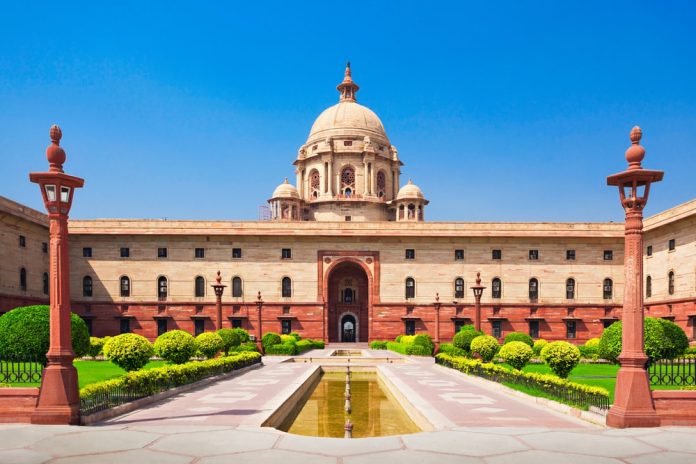Civil Service Eligibility Criteria For UPSC Civil Services Exam 2020
Civil Service Eligibility: Civil Services Examination it is conducted in three phases – a preliminary examination consisting of two objective-type papers (General Studies Paper I and General Studies Paper-II also popularly known as Civil Service Aptitude Test or CSAT), and a main examination consisting of nine papers of conventional (essay) type, in which two papers are qualifying and only marks of seven are counted followed by a personality test.
Over seven lakh candidates register for the UPSC prelims every year and it is considered one of India’s most desired examinations. This year around 10 lakh aspirants have registered for the UPSC prelims examination.
Eligibility Criteria for Civil Services Examination
Nationality: Civil Services Examination
For civil services, examination Candidates must have certain Criteria for Nationality.
- A Candidate must be a citizen of India
- Candidate must be a citizen of Nepal or a subject of Bhutan
- Candidate must be a Tibetan Refugee who came to India before January 1, 1962, to be settled permanently in India
- He must be a person of Indian Origin who has migrated from Ethiopia, Kenya, Malawi, Myanmar, Pakistan, Sri Lanka, Tanzania, Uganda, Vietnam, Zaire, or Zambia with an intention of permanently settling in India
Educational Qualification: Civil Services Examination
- Candidate applying for the Civil Services 2020 exam is required to fulfill the following criteria: Candidate must hold a Bachelor’s Degree from any of the recognized universities
- Candidates who have appeared for the qualifying examination and are awaiting results or those who are yet to appear for the qualifying examination are also eligible for the Preliminary Examination. Such candidates have to produce proof of passing the said examination along with the application for the Main Examination
- Candidates with professional and technical qualifications recognized by the Government or its equivalent are also eligible to apply
- Candidates who have passed the final year of MBBS or any Medical Examination but are yet to complete the internship can also appear for the Main Examination. However, they must submit a certificate from the concerned University that they have passed the final professional medical examination
Age Limit: Civil Services Examination
A candidate should be a minimum of 21 years and a maximum of 32 years old as of August 01, 2020. But he/she must have been born not earlier than August 02, 1988, and not later than August 01, 1999. Necessary action will take to make corresponding changes in respective Rules/Regulations pertaining to various services.
The upper age limit prescribed above is relaxable for the following candidates:
- 5 Years – Scheduled Caste/ Scheduled Tribe (SC/ST)
- 3 Years – Other Backward Classes (OBC)
- 3 Years – Defence Services personnel
- 5 Years – ex-servicemen including Commissioned Officers and ECOs/SSCOs who have rendered at least 5 years Military Service as on August 01, 2020.
- 5 Years in the case of ECOs/SSCOs
- 10 Years – Blind, deaf-mute, and orthopedically handicapped persons
- 5 Years – In the case of ECOs/SSCOs who have completed an initial period of assignment of five years of Military Service as on 1st August 2019 and whose assignment has been extended beyond five years and in whose case the Ministry of Defence issues a certificate that they can apply for civil employment and that they will be released on three months’ notice on a selection from the date of receipt of an offer of appointment
Number of attempts: Civil Services Examination
Restriction on the maximum number of attempts is effective since 1984 on civil services examination:
- For General Candidates: 6 attempts (Up to 32 Years)
- Scheduled Caste and Scheduled Tribe Candidates (SC/ST): No Limits (Up to 37 Years)
- Other Backward Classes (OBC): 9 attempts (Up to 35 Years)
- Physically handicapped- 9 attempts for general and OBC, while unlimited for SC/ST
All India Services
- Indian Administrative Service (IAS)
- Indian Police Service (IPS)
Central Services (Group A)
- Indian Foreign Service (IFS)
- Indian Audit and Accounts Service (IA&AS)
- Indian Civil Accounts Service (ICAS)
- Indian Corporate Law Service (ICLS)
- Indian Defence Accounts Service (IDAS)
- Indian Defence Estates Service (IDES)
- Indian Information Service (IIS)
- Indian Ordnance Factories Service (IOFS)
- Indian Postal Service (IPoS)
- Indian P&T Accounts and Finance Service (IP&TAFS)
- Indian Railway Accounts Service (IRAS)
- Indian Railway Personnel Service (IRPS)
- Indian Railway Protection Force Service (IRPFS)
- Indian Railway Traffic Service (IRTS)
- Indian Revenue Service (IRS-IT)
- Indian Revenue Service (IRS-C&CE)
- Indian Trade Service (ITrS)
Group B Services
- Armed Forces Headquarters Civil Services (AFHCS)
- Delhi, Andaman and Nicobar Islands Civil Service (DANICS)
- Delhi, Andaman and Nicobar Islands Police Service (DANIPS)
- Pondicherry Civil Service (PCS)
- Pondicherry Police Service (PPS)
Roles and Responsibilities of Civil Services
- Handling affairs of government that involve framing and implementation of policy in consultation with the concerned Minister.
- Implementing policies through supervision and also traveling to the places where the approved policies will be implemented
- Implementing policies comprises the disbursement of funds through personal supervision.
- Answerable to the Parliament and State Legislatures for any violation of rules while on duty.
- Functions and responsibilities differ at different levels of career.
- The post of the District Officer also known as District Magistrate, District Collector, or Deputy Commissioner is the highly respected and responsible post the IAS officers enjoy.
- At the district level, an IAS officer deals with district affairs, including the implementation of developmental programs.
- The officers may also be appointed in the State Secretariat or they may serve as Heads of Departments or in Public Sector Undertakings.
- They may serve in different positions from the State to the Centre and vice versa. This happens through deputation.
- At the Centre, IAS officers serve at the highest position as the Cabinet Secretaries, Secretaries/Additional Secretaries, Joint Secretaries, Directors, Deputy Secretaries and Under Secretaries. They are appointed to these posts based on seniority.
- At the Centre, the IAS officers play a key role in the formulation and implementation of policies related to a particular area; for instance, finance, commerce, etc.
- During the formulation of a policy and decision making, IAS officers serving at different levels i.e. joint secretary, deputy secretary give their valuable inputs.
- The policy takes its final shape through a final decision the minister concerned or the cabinet, depending on the seriousness of the situation.
Also Read: UPSC Civil Services Exam 2020: New Exam Date Released: Click here
Check it out Latest Government Jobs: Click here
If You Want To Get More Daily Such Jobs Updates Then Press Red Bell Icon At The Right Side of Page To Subscribe our Updates.
Join Whatsapp Group of Daily Jobs Updates for 2010-2021 Batch: Click Here
Why You’re Not Getting Response From Recruiter?: Click here
Subscribe Our Telegram Channel for Interview Questions: Click here
Capgemini Latest News: Up To 30K+ Employees Will Be Hired: Click here
COVID-19 Live Tracker India & Coronavirus Live Update: Click here
CoronaVirus: Facts, Symptoms, Prevention, Causes, Treatments: Click here
Cognizant Latest News: Up To 20K+ Employees Will Be Hired: Click here
Feel Like Demotivated? Check Out our Motivation For You: Click here
How To Get a Job Easily: Professional Advice For Job Seekers: Click here
Best Site For Edit A Video Online: Clipchamp: Click here
WhatsApp Video Call Update Possible To Call Up To 8 Peoples: Click here
Best Sites To Watch Free Movies Streaming Online in 2020: Click here























